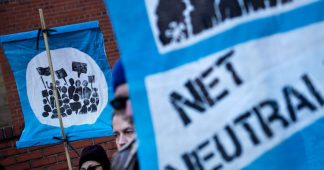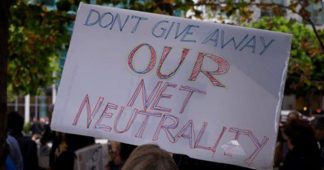by Chris Spannos
7 April 2018
News that Cambridge Analytica exploited the huge cache of Facebook user data, and that Facebook elevated commercial interests above user safety, is just the latest disaster highlighting that the Internet is a dangerous system.
The problem of bad actors manipulating the Internet has been snowballing for years. Low barriers to entry, freedom of participation and openness no longer characterise the Internet, which now is a force bursting societies apart at their seams, enabling small groups to wreak havoc on ever larger numbers of people.
In 2014 Tim Berners-Lee, inventor of the World Wide Web, proposed an online ‘Magna Carta’ to protect the Internet, as a neutral system, from government and corporate manipulation. He was responding after revelations that British and US spy agencies were carrying out mass surveillance programmes; the Cambridge Analytica scandal makes his proposal as relevant as ever.
While conventional thinking reacts to these events by calling for the Internet to be saved, the crises strike with such frequency and severity that they test the resolve of even the Internet’s best defenders. In response to the continued ‘weaponisation’ of the web, Berners-Lee said last year: ‘I’m still an optimist, but an optimist standing at the top of the hill with a nasty storm blowing in my face, hanging on to a fence … We have to grit our teeth and hang on to the fence and not take it for granted that the web will lead us to wonderful things.’
I no longer believe that the Internet can be saved: it’s too late. The arguments that it can be saved by a bill of rights-style Magna Carta or through more specific regulation are too little too late.
That is because calls to save the Internet are based on the false assumption that it is a neutral system. The Internet’s central design features – protocols, domains, networks, servers, data, codes – and its governance structures are deeply political and embedded within political and economic structures.
Read more at https://mondediplo.com/outsidein/can-the-internet-be-saved











